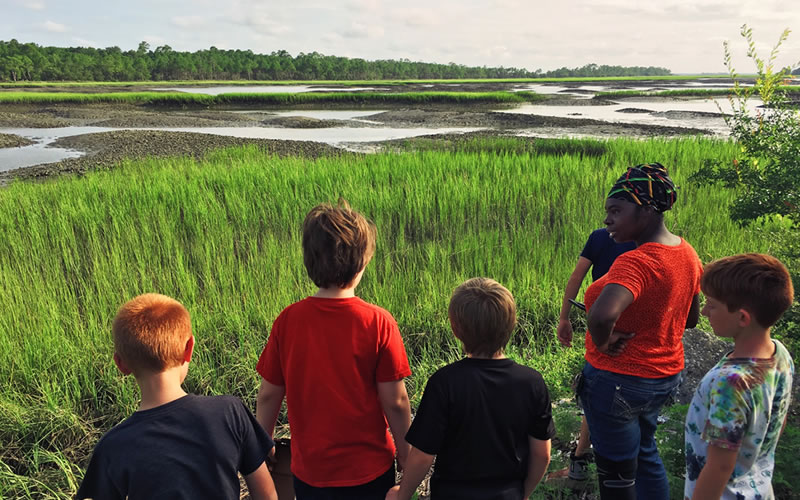
All photos in this story are courtesy Asia Batey, ABxCreatives.
By Asia Batey, special to Charleston Currents | Preserve the Gullah has been a three-year effort which all started when three North Charleston locals were introduced to the Sol Legare area, and with the help of their mentor, discovered the wealth of knowledge and history within this small, hidden community.
In 2015 in the midst of statewide flooding and the subsequent damage to the cookie-cutter subdivisions and businesses throughout Charleston, Willie Heyward, Asia Batey and Milton Tyus witnessed homes built many decades ago — by hand, mind you — barely chip a single bit.
Within the first week of moving to the area, they met families who still gardened and ate from the land. They were taught how to dig up dandelion root and learned of its health benefits, and they discovered that lemon and lavender are perfectly functioning natural mosquito repellents. This was all knowledge that, two weeks prior, was seen as the type of organic living that was only possible if you could afford to shop at Whole Foods. Yet here they were, meeting an entire community of people who had been living their entire lives this way, only three miles up from Folly Beach.
Here, they met the descendants of the Gullah people.
Documenting Preserve the Gullah
As a team of artists, the entire journey was documented. There were many afternoons spent sitting on various great-grandmothers’ front porches, discussing what the area used to be like, and where they’d like to see it get to before their final days. To these matriarchs, it was imperative that these lands and traditions were honored in the right ways, but unfortunately society was going in a different direction.
As adults, their children had moved to bigger cities in hopes of achieving the “American dream”, and though many of their grandchildren returned to the area, the idea of tilling and living off of the land just wasn’t as appealing. Combine this with the constant offers and intense pressure to “sell, sell, sell” the pristine waterfront properties, and you end up with a tired matron who just wants to talk to someone who will listen, even if it is three strangers sitting on her front porch.
The more people they interviewed, the more information that surfaced, such as the rise and fall of Mosquito Beach, an area that was once a haven for people of color when they weren’t allowed onto Folly Beach, and how this now historic, humble area is still labeled as being ripe with crime and violence, despite those troubled times making up the smallest part of its history.
So they decided to do something about it. Led by their mentor, Makh Aten, they formulated the idea of an organization that would seek to bring light to this entire situation. It would combine social justice with sustainability education, and create opportunities for unused land to be used for good, without being taken from those who own it.
It would Preserve The Gullah.
Once the idea was born, they hit the ground running. Nature gave them their first project of beautification through cleanups and sandbagging, an effort that would take up months of their time and force them to literally build their foundation from the ground up. They pushed on social media for friends to come out and interact with both the people and the land, and celebrate the culture that was incubated within the community there.
Creating positive change
The steps that followed and the structure that formulated around the non-profit from that point were all organic, ebbing and flowing based on the needs and opportunities around them. It’s been three years since that first effort, and the aim of Preserve The Gullah (PTG) is now clear: to preserve the historical, economic and ecological legacy of the Gullah culture.
The projects within PTG seek to create positive change in all aspects of the community, including (but not limited to): ecological rehabilitation, economic rejuvenation, cultural preservation and youth empowerment. They seek to move beyond focusing on one single problem with one single solution, instead viewing the issues as multifaceted, and offering a more comprehensive platform for broad-based community building.
Three years of success
These goals are evident in all efforts and endeavors presented by the nonprofit over the years, and reflect in the groups they collaborate with also:
- In 2015, PTG spearheaded a sandbag drive after the mass flooding of the Lowcountry, and followed this up with a coastal revitalization project, taking the excess sandbags and using them to stabilize the coastline of Mosquito Beach.
- In 2017, PTG acquired its first flagship location, The SugaShack, which functions as a cultural center and a venue to host weekly unifying events, such as the SugaShack Sessions, an all-genre open mic night, “Fish Fryday” fundraisers, and monthly full-moon parties.
- In July, The Geechee Gala, the first official PTG fundraiser, was held at 2 Canal St with the help and support of CharlestonGOOD, and featured a full photography exhibit, a culinary experience, a drum circle, a feature-length documentary, and plenty of progressive conversation.
- A beach clean-up, in collaboration with Charleston Waterkeepers.
- A Gullah farmer’s market, in collaboration with Sea Island Farmer’s Market and A Taste of Gullah
- Stargazer, a science and art workshop event, in collaboration with Cultivate, CharlestonGOOD, and College of Charleston.
- The SEED Concert: Solar Eclipse Entertainment & Dance, a music festival event in celebration of the total solar eclipse, held on Mosquito Beach on August 21, in collaboration with CharlestonGOOD and OVAYOHEAD.
Their coming projects continue to revolve around the revitalization of the Mosquito Beach area and the communities within it. The current long-term goal is to rebuild the historic dock and pavilion that once stood as the center of the Sol Legare recreational area in the 1940s and 1950s. In the meantime, there will also be an updated calendar of monthly events that are always open to the public.
The founders hope that these events will introduce the area and the mission to a number of locals and tourists alike, and further push the point that we all can have a hand in making history, no matter where someone is from.
About Preserve the Gullah
Founded in 2015, Preserve the Gullah focuses on preserving the historical, economic and ecological legacy of the Gullah culture, providing opportunities for progression to all of its people.
Through various projects and programs, PTG strives to reach its mission and goals of raising awareness of the historical and ecological relevance of the Mosquito Beach & the Gullah Corridor; advocating sustainability, through both progressive and traditional techniques; and supporting and empowering the community, by promoting the idea of celebrating the lost skills of our past, and bringing them into a modern and sustainable future. ‘
Asia Batey is a photojournalist and content producer (ABxCreatives), primarily focusing on culture, the arts, and social issues, and a co-founder of Preserve The Gullah.
- Have a comment? Send to: editor@charlestoncurrents.com


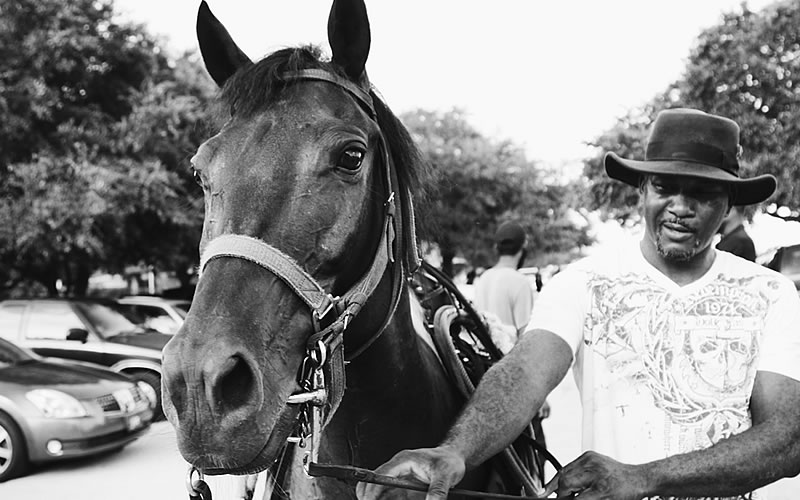
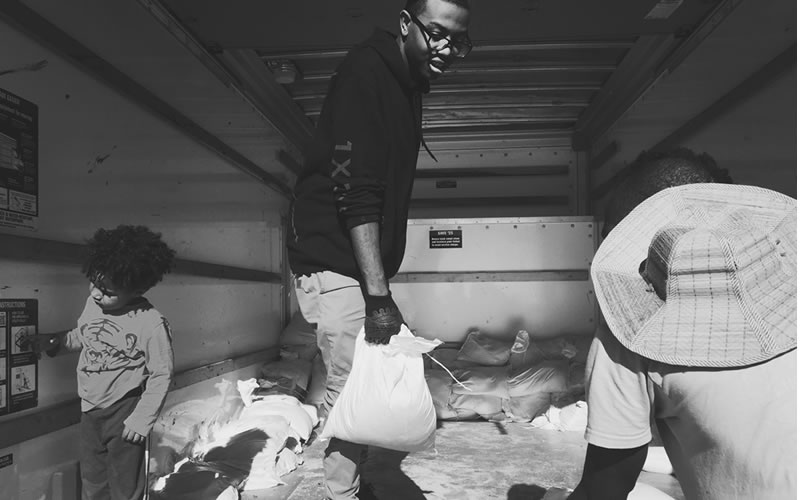
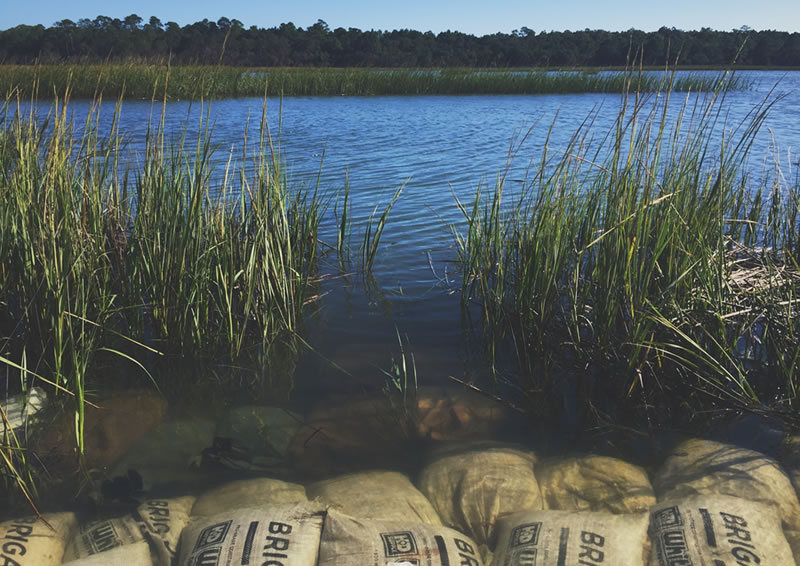
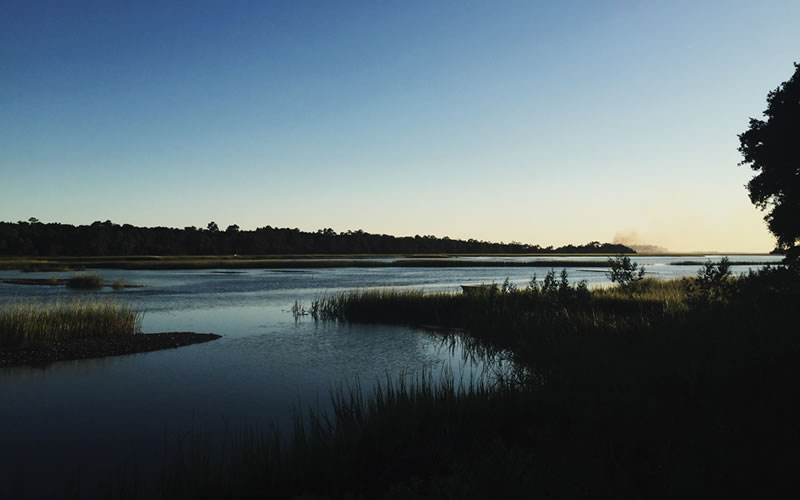

 We Can Do Better, South Carolina!
We Can Do Better, South Carolina!
























